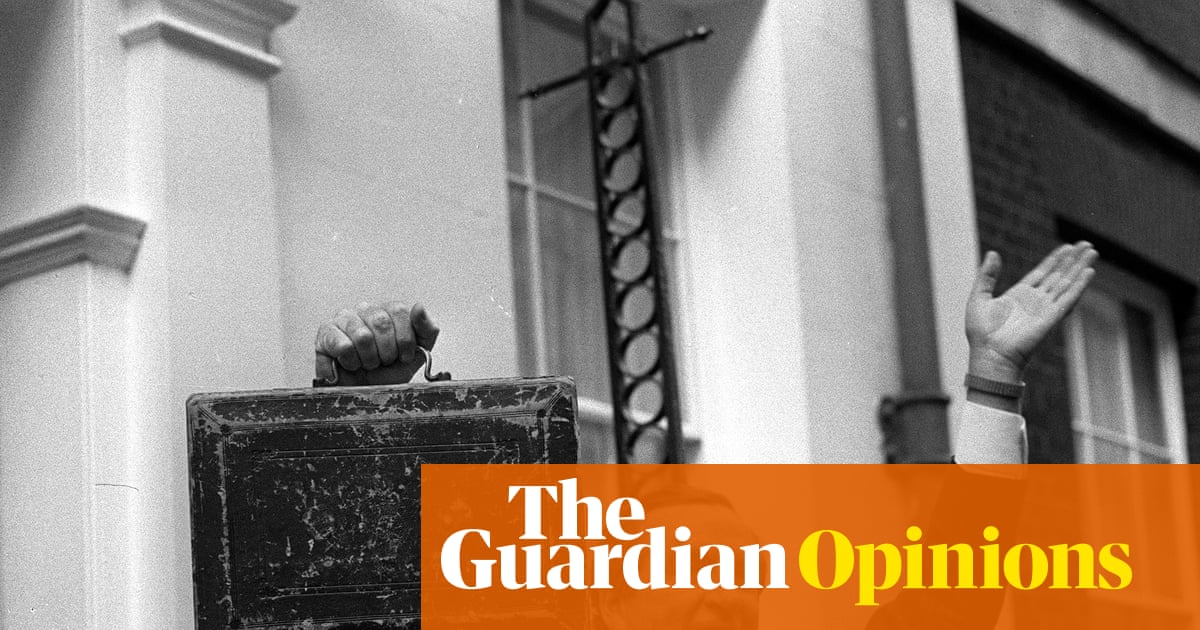
Britain is in danger of going bankrupt. It may happen slowly or quickly, but since Labour took office this possibility has increasingly been promoted and discussed in the press, by opposition parties and in the City of London.
What exact form will this bankruptcy take? The prophets of doom tend to be vague about the timescale, but more certain about the cause of the coming meltdown: the state spending too much, generally on people who have little.
“Rip up the benefits system and start again,” was the headline of a column by the usually measured Matthew Parris in the Times this week. The welfare state, he wrote, is “in danger of toppling the whole economy”. Unsustainable numbers of claimants are “joining the bandwagon as it careers towards the abyss”.
Such warnings appear to be given credibility by worried bulletins from the Office for Budget Responsibility (OBR), a Conservative-Lib Dem creation intended to build confidence in Britain’s fiscal position but in practice more often doing the opposite. “The UK’s public finances have emerged from a series of major global economic shocks in a relatively vulnerable position,” said the OBR last month. “Underlying public debt is now at its highest level since the early 1960s and is projected to rise further … An ageing population and rising costs of healthcare and other age-related expenditures are … projected to push … debt above 270% of GDP by the early 2070s.”
Already, a sustained rise in the cost of government borrowing, disappointing economic growth and tax revenues, and a little-questioned push to increase defence spending are all worsening the situation. This autumn, the chancellor, Rachel Reeves, will probably have to produce a budget in an atmosphere of acute financial anxiety, and possibly outright panic.
Labour chancellors have been here depressingly often before: in 1931, during the Great Depression that helped destroy Ramsay MacDonald’s government; in 1976, when confidence collapsed in the finances of Jim Callaghan’s administration and the UK had to get a loan from the International Monetary Fund; and in 2008, when Gordon Brown’s chancellor, Alistair Darling, warned that economic circumstances were “arguably the worst they’ve been in 60 years”.
On each occasion, the financial thunderclouds built up during late summer. With parliament not sitting, leaving a void for speculative news to fill, and many voters approaching the end of holidays and beginning to think about autumn belt-tightening, in August Britain may be particularly receptive to bleak forecasts about government borrowing.
Yet far less attention is paid to the doom-mongers’ political assumptions. When journalists, economists and politicians say sternly that Britain “can’t afford” certain things, they rarely mean nuclear weapons that will probably never be used, or bailouts for reckless banks, or the rapidly growing grant for a royal family that already has highly profitable estates. When sweeping austerity is called for, the most entrenched establishment interests are usually exempt.
Nor do these supposed tellers of hard financial truths often consider whether the UK can afford low taxes on the rich, by international and historic standards, or the deterioration in public services already caused by cuts, with all its damaging consequences for productivity, social relations and public health. The surprise at the angry, run-down state of the country still expressed by many commentators – from the Financial Times to the Daily Telegraph – suggests a determination not to see austerity, social divisions and political upheaval as in any way connected. It’s a sign of the enduring influence of Thatcherism that so many people can look at our ever harsher society and economy and still conclude that the solution is not more government support for citizens, but less.
Thus, a panic about the size of the state is created yet again. What can the government do to stop it – assuming it actually wants to? In 1931, 1976 and 2010, Labour responded to fiscal crises in what is revealingly regarded, across mainstream politics, as the conventional way: by proposing cuts. There remains a puritanical side to the party – perhaps partly a legacy of its origins in tightly run cooperative societies – that enjoys trying to prove that Labour governments are more frugal than Tory ones.
When Labour has an expansive, confident leader, such as Tony Blair in the 1990s, spending restraint can make the party look measured and responsible: being careful now in order to spend more later. But under less persuasive leadership, cuts can become a trap. Some voters will always believe that Labour is profligate in office – and others that it is never generous enough. The party lost all three general elections after MacDonald, Callaghan and Brown’s governments chose cuts.
Tentative Labour governments can be too influenced by pro-austerity interests. After the 1976 crisis had subsided, and the Callaghan administration had enacted sharp spending reductions, his chancellor, Denis Healey, discovered that the government debt forecasts he had been given by Treasury officials had been far too pessimistic. “The figures were billions out,” he told me decades later. “The big problem they have in the Treasury is getting governments to control spending. So any excuse they can find for getting spending cut, they will take.”
Now, the scale of the government’s problems seems less open to interpretation. This week, the respected National Institute of Social and Economic Research warned that “the chancellor cannot simultaneously meet her fiscal rules, fulfil spending commitments and uphold manifesto promises to avoid tax rises for working people. At least one of these will need to be dropped.” Global financial markets, which have become even more interconnected and powerful since Labour’s last fiscal crisis in office, and which are operated by people who won’t bear the brunt of British public spending cuts, will scrutinise the budget with their customary coldness.
Yet somehow Labour needs to break free of the argument, almost a century old now, that its more progressive policies and poorer people’s living standards are the first things that should be sacrificed in hard times. Perhaps one way is to highlight austerity advocates, past and present, such as George Osborne and Kemi Badenoch. Can the country really afford more of that kind of haughty, socially disastrous politics, Labour could ask.
But then it would have to set out an alternative: a centre-left politics that can survive financial crises – or avoid them altogether. After so many fearful retreats, that work has barely begun.
-
Andy Beckett is a Guardian columnist








